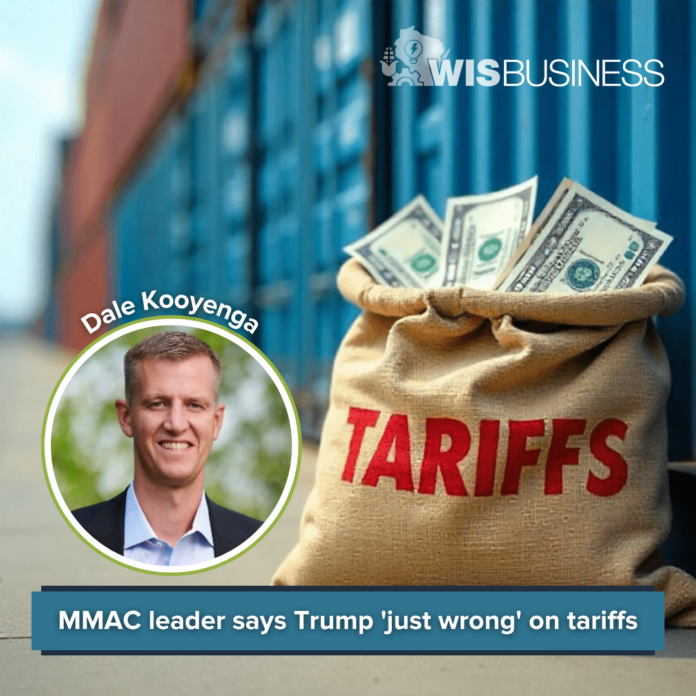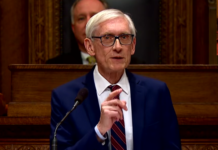The head of MMAC says President Donald Trump is “just wrong” on tariffs as trade with key partners takes a hit amid uncertainty about U.S. policy.
Dale Kooyenga, president of the Metropolitan Milwaukee Association of Commerce, weighed in Friday on the latest global trade policy developments during a webinar hosted by the Wisconsin Policy Forum.
Citing those close to the president and Trump’s own remarks, Kooyenga said Trump truly believes tariffs are a positive economic tool.
“Similar to how some Democrats believe in university research funding leads to economic growth, he believes that tariffs lead to economic growth, so that’s not a bluff. And he’s just wrong about that,” said Kooyenga, a Republican who previously served in the state Senate.
He pointed to a “large consensus” of mainstream economists across the political spectrum who say more free trade is better than tariffs.
The effective U.S. tariff rate is currently set at the highest level in generations, around 18%, according to figures presented by WPF before the discussion. But that could change in the weeks and months to come as Trump threatens even higher tariffs in some cases.
Earlier this month, Trump said he will impose a 35% tariff on Canadian goods starting in August. The threat comes as Wisconsin’s largest commercial shipping hub, Port Milwaukee, is seeing lower activity overall and in key commodities coming from the United States’ northern neighbor.
Port Director Jackie Carter said salt shipments coming from Canada are 59% lower than at this point last year, which was already a down year due to more typical market factors. Overall tonnage through May is 30% lower over the year, she said.
“Some of that has to do with what we had, you know, in stock and where we don’t have space to replace those cargoes,” she said Friday. “But a lot of that has to do with a slower start to the year because of all the uncertainty.”
Kooyenga pointed to the port figures as an area of concern, noting “we don’t have salt mines in Wisconsin.”
Meanwhile, Canadian Consulate General in Chicago Aaron Annable stressed the “stable, reliable” trade relationship between Wisconsin and Canada and said his government wants to expand that going forward. He noted the state has a $2 billion trade surplus with Canada, due largely to Wisconsin’s “very powerful” manufacturing sector.
“If I look at what I think the U.S. administration is trying to achieve with its trade policy actions, it’s, you know, bringing manufacturing back and reducing trade deficits,” he said. “In some sense, Wisconsin kind of epitomizes this with Canada with this trade surplus.”
Annable noted the efforts Canada has made to build integrated trade relationships with many U.S. states including Wisconsin, and emphasized the importance of cross-border supply chains for both economies.
“That’s something that’s built up over time, and with the uncertainty around these tariffs … some of that may be at risk, including from companies on both sides of the border, not really sure if that relationship can continue,” he said, adding “at the end of the day, that is what is at stake.”
While government-level decisions are shaping businesses’ import and export choices, Kooyenga noted governments themselves “rarely trade” with one another.
“It is individuals and businesses that are trading, and why are they doing that? Because they like each other most of the time and they’re offering something of value,” he said. “And when government is putting a tariff on top of that, they are inserting themselves in that relationship.”







